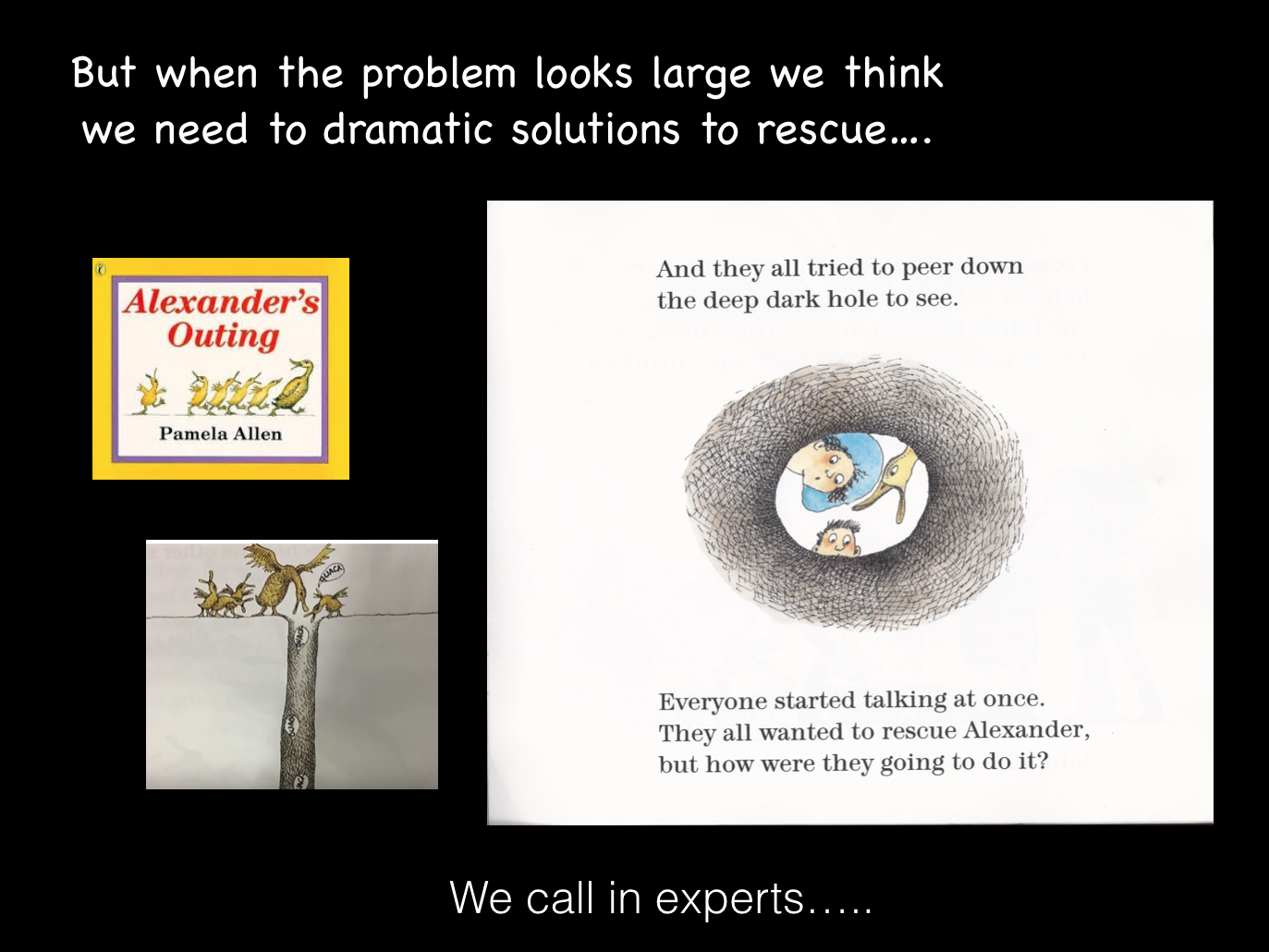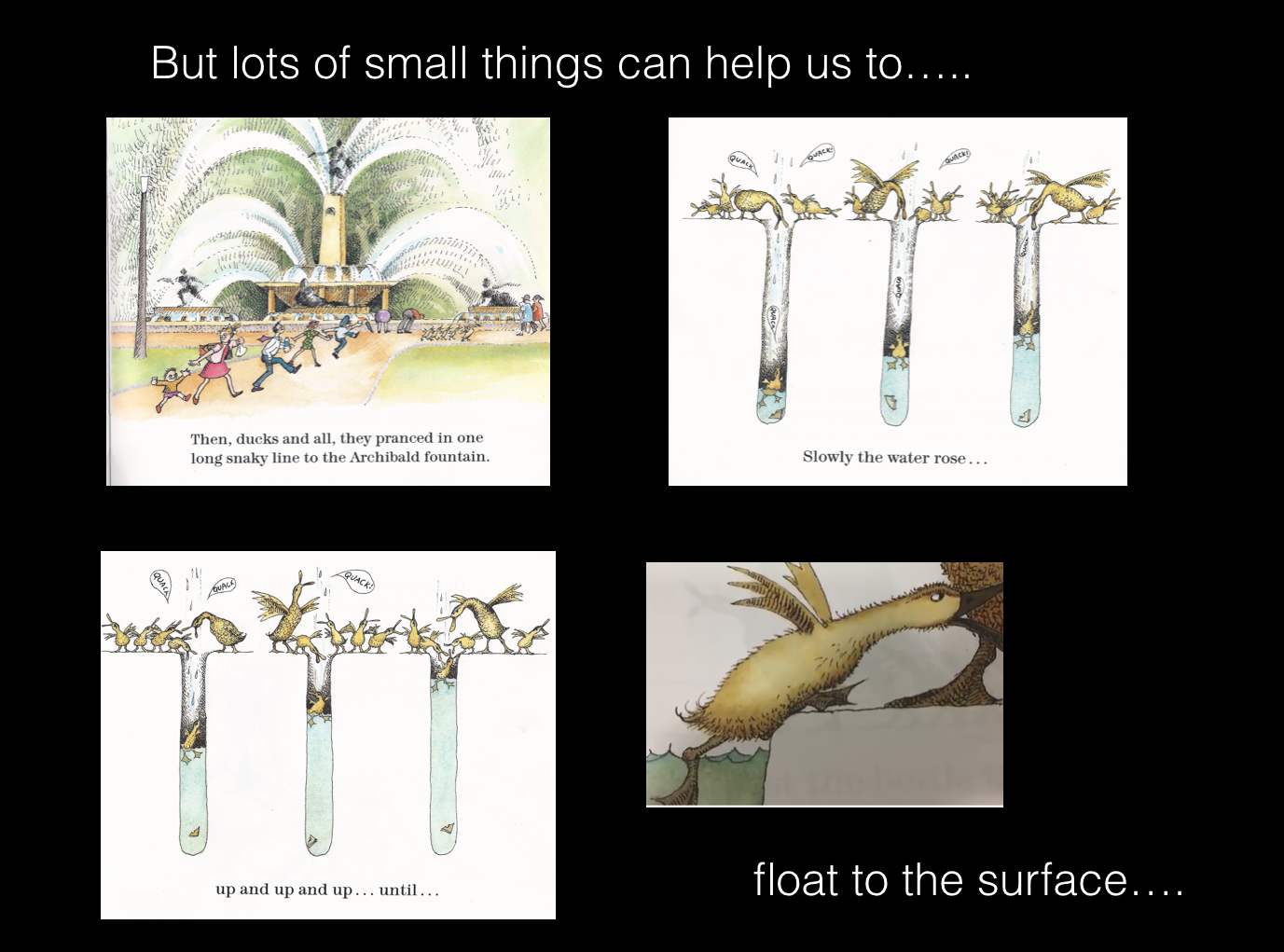I believe in recognizing the brilliance of our survival strategies. Learning about, and supporting others, to learn about how brains respond to violence, neglect, and other traumatic experiences opens new possibilities. When we look at learning difficulties, and behaviour that gets in the way of learning, with fresh eyes we can get creative about strategies. Our Brilliant Brains was created for shelter workers in Alberta. Watch it to learn more about my approach.
It’s the tiny things that can make a startling difference to learning. I like to work with people over time, so I can help educators, counsellors and administrators, to look afresh, notice all the little changes they might make, experiment with creative approaches and see for themselves the difference they can make in the capacity of students and clients to learn and change.
In the children’s picture book, Alexander’s Outing, a young duck falls into a hole. Many people try to find the solution they are sure will save him. Everything fails, until a child thinks about floating the duckling to the top of the hole. When everyone joins in bringing tiny cup or beaks full of water, eventually the duck floats up on his own.
This story is a perfect metaphor. It’s not rescue by experts, or leaving the group that makes the difference to support learning, but inclusion, and lots of tiny interventions by everyone involved. The person struggling to learn needs to be an active participant, not “fixed” by others. When others decide what you need “for your own good” it can feel like further violence, being controlled by others all over again.


